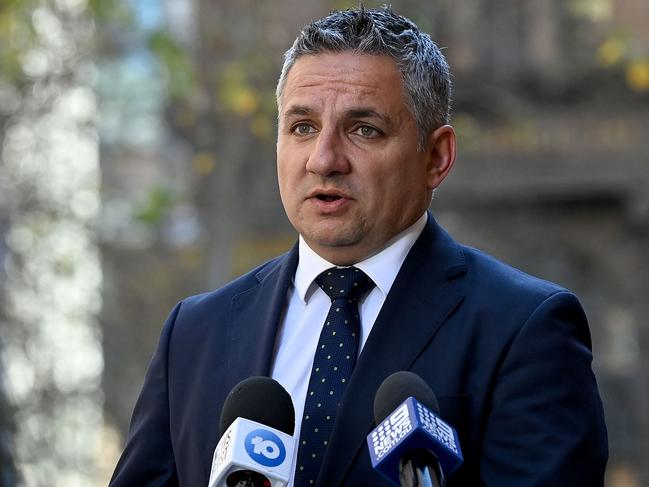NSW’s mobile speed camera program under scrutiny after discrepancy revealed
NSW’s controversial mobile speed camera program has drawn fresh criticism after a massive difference in fines emerged across the state.
On the Road
Don't miss out on the headlines from On the Road. Followed categories will be added to My News.
Revenue from NSW’s controversial mobile speed camera program fell to zero in one half of the state in July while drivers in the other half received a record number of fines.
Regions in the south with previously high rates of mobile speed camera fines dropped to nothing – including Wagga Wagga, which recorded 500 fines in April and Nowra, which recorded 313 fines in May.
The motorists’ association NRMA has criticised the state government for the discrepancy, calling for greater transparency over how it issues speeding fines.
NRMA spokesman Peter Khoury said his organisation had been working to ensure the community supported speeding enforcement but people deserved to know how decisions like these were made.

“I think we can all agree that a situation where one half of NSW is receiving a record number of fines while there is almost no enforcement in the other half of the state is not the road safety outcome we want for NSW,” he told NCA NewsWire.
“We are concerned with today’s reports, particularly as we know the road toll remains stubbornly high across NSW and especially in regional NSW where we have 10 deaths more this year than the same time last year.”
Government data obtained by NSW Labor reveals no mobile speed camera fines were issued in July in most of the south of Sydney and the south of the state, while record fines were issued in the north.
It follows a decision to triple the number of hours of speeding camera enforcement from the start of July from 7000 hours per month to 21,000 hours.
Separate companies are responsible for administering the speed cameras in each half of the state.

Opposition roads minister John Graham raised the figures at a budget estimates hearing on Friday, asking senior transport bureaucrats to explain the “catastrophic failure of the administration” of the scheme.
The transport officials seemed to be unable to answer most of his questions and took many of them on notice.
Centre for Road Safety executive director Bernard Carlon said the enforcement hours would be ramped up “gradually” to 21,000 hours.
“By the end of the year, the coverage of both regions will be at the prescribed level for the contracts,” he said.
Mr Graham asked whether former Deputy Premier Troy Grant met with transport officials while he was working for Acusensus, the company responsible for operating speed cameras across southern NSW – where no fines were issued.
Transport for NSW secretary Rob Sharp said he would take that question on notice.
When asked if the scheme and the difference in fines would be investigated, Mr Sharp said: “Yes, we’ve indicated to you that we will explore that data, the questions it raises in regards to the contract and the mix of fines”.
Originally published as NSW’s mobile speed camera program under scrutiny after discrepancy revealed


